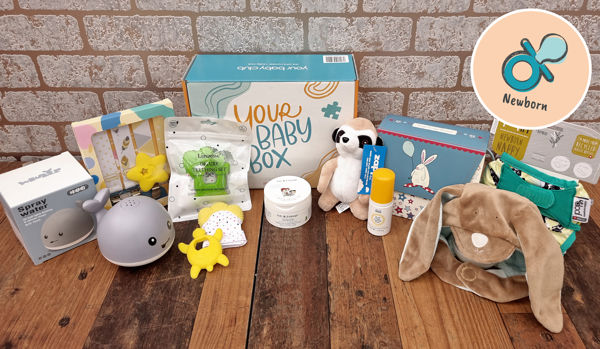So, you’re thinking of trying for a baby - how exciting! We’ve pulled together some tips to help you become healthier, have more fun, and ultimately, feel more prepared to begin your conception journey.
Ditch the Pill
First and foremost, ditch the contraceptives! Whether you are on a hormonal or non-hormonal method of contraception, it’s time to get them removed, stop taking or stop using them. It’s time to make a baby! Many hormonal contraceptives may take a few months to get out of your system, so bear this in mind if you're wanting to conceive immediately. Non-hormonal methods like the copper coil and condoms, however, do not affect your fertility, and you may be able to fall pregnant immediately after removal/non-use. That's not to say that once you stop taking the hormonal pill you can't fall pregnant, just don't be worried if it doesn't happen straight away. Once you stop using contraceptives, you can better understand your natural menstrual cycle, learn when your ovulation days occur, and measure your body’s hormone levels, to know when is best to conceive during your cycle.
Visit Your GP
Before taking the step/lunge into parenthood, it is important to talk to your doctor at least 3 months before you start trying. Speak to them regarding any existing health issues, underlying conditions, and discuss family history (genetic testing) on both sides, which may cause complications further down the line, or be potential barriers to you conceiving as quickly. You also want to make sure you’re up to date on vaccinations and get tested for heart health issues like high blood pressure and irregular cholesterol levels, as well as any other conditions such as diabetes, asthma or thyroid problems which should be identified sooner rather than later.
Don’t Forget the Dentist!
Getting your teeth and gums checked before you start trying to conceive would be a good idea too, as women with unchecked gum disease are typically more prone to miscarriages, preterm births and pre-eclampsia1. Once you’re pregnant, getting X-rays won't be possible, so it's best to get them checked beforehand.
Put Away the Vino and Pack of Smokes
Sad, we know, but this is a necessary step in helping you conceive, as well as reducing the risk of birth defects, miscarriages, preterm labour, and other associated risks once you fall pregnant. Smoking and drinking during pregnancy are of course a big no-no, but many are unaware that you should start scaling back or stopping altogether whilst you’re actively trying to conceive too. If you’re certain you’re not pregnant, you can indulge in the occasional Friday night drink, but do drink in moderation, so it may be time to swap your cocktails for hot cocoa. That goes for your partner too! Excess alcohol intake, as well as smoking, has been known to interfere with your fertility and the father’s sperm.
Remember, no level of smoke exposure is safe, with more notable problems occurring whilst trying to conceive after inhaling second-hand smoke, over direct smoking. Quitting smoking or your proclivity for indulging in a few shots on the weekend, is an incredible achievement, so make sure you remember that when you’re kicking addiction’s butt! You go mumma!
Limit the Coffee Breaks
We know, it’s asking a lot. A morning coffee, afternoon frappe, cuppa tea or even a shiny can of cola are a must at the moment to help us get through the day, but if you’re thinking of trying for a baby, limiting your caffeine intake can reduce the risk of miscarriage and prevent those horrid withdrawal symptoms once you fall pregnant. Most doctors recommend a daily intake of no more than 200 milligrams when trying to conceive (a small cup of coffee is about 100mg), though some suggest going cold turkey, especially during conception and in the first trimester. This limit includes all sources of caffeine, including soda, tea, energy drinks, chocolate, coffee and pain medication. It’s time to start reading the labels and knowing what you’re putting into your body to maximise your chances of falling pregnant and having a happy, healthy baby!
Get Healthy
While we’re not here to tell you to change your lifestyle, getting your body healthy and fit for pregnancy can only increase your chances of falling pregnant. Pregnancy pushes the body in many ways, so a good diet and exercise is encouraged to help your baby develop well and grow. No need for a special diet, but a balanced one with a variety of foods, packed with vitamins and minerals is essential to get the right nutrients that your body and your baby need. Your diet before pregnancy is equally important, and cutting out saturated fats and sugar before, as well as during pregnancy can reduce the risk of your baby developing high blood pressure and weight gain later in life.
Start Saving
The reality is, babies are expensive. There’s no tiptoeing around that and with statutory maternity pay being very constricting, surviving maternity leave with a newborn isn’t easy for many families. If you’re thinking about starting a family, it’ll make things a lot easier for you if you start saving now. Even if you are putting just £20-£100 aside each month, it’ll soon mount up by the time you conceive, and right up to the birth. Of course, the more you save, the more money you’ll have to maintain your current lifestyle, throughout maternity leave until you’re able to go back to work - if you choose to go back at all.
Vitamin supplements
If you’ve done any research into pregnancy, or spoken to your GP or gynaecologist, you’ll know already how important folic acid is during the first trimester. Hopeful mums should aim to take 400 micrograms (ug) of folic acid per day, until at least 13-weeks. Taking folic acid preconception, as well as throughout pregnancy, can vastly reduce the risk of neural tube defects such as spina bifida.
Vitamin D is required to keep our bones, teeth and muscles healthy, and we produce it when our skin is exposed to sunlight, therefore, it is recommended that during the winter months from September to March, women take 10ug of vitamin D every day.
Pregnancy can result in some women becoming deficient in iron. You will be routinely tested for this, however, if you experience fatigue or shortness of breath, speak to your midwife, who will arrange a blood test and prescribe iron supplements if required.
Maintaining a healthy level of vitamins and minerals can also be done through a balanced, varied diet where possible.







